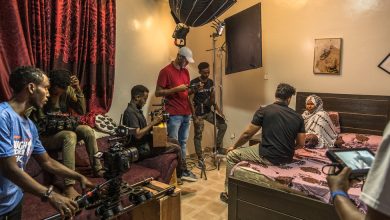Britain drops southern African nations from its ‘red list’ for quarantine restrictions.

With new coronavirus cases surging at home, the British government on Tuesday lifted its special restrictions on travelers arriving from 11 African countries, ending measures it had adopted hoping to curb the spread of the Omicron variant.
Nations including South Africa, Zimbabwe and Namibia were put on a “red list” in November, requiring anyone arriving in Britain from those countries to quarantine at their own expense in government-approved hotels for 10 days.
Other countries quickly placed their own restrictions on travel from southern Africa, prompting complaints that South Africa was being punished for its effective work in notifying other countries about the spread of the variant. Antonio Guterres, the secretary-general of the United Nations, described the restrictions as a form of “travel apartheid.”
Now, though, with Omicron already spreading widely in Britain, the government concluded that it had lost the battle to prevent its importation from abroad.
On Tuesday, the health secretary, Sajid Javid, announced the end of the “red list” restrictions for England that applied to Angola, Botswana, Eswatini, Lesotho, Malawi, Mozambique, Namibia, Nigeria, South Africa, Zambia and Zimbabwe.
“Given that there is community transmission of Omicron in the U.K. and that Omicron has spread so widely across the world, the travel red list is less effective in slowing the incursion of Omicron from abroad,” Mr. Javid said in Parliament.
“While we will maintain our temporary testing measures for international travel, we will be removing all 11 countries from the travel red list, effective from 4 tomorrow morning,” he added.
Scotland, Wales and Northern Ireland, which maintained similar red lists, followed London’s lead on Tuesday.
World Health Organization officials thanked Britain for lifting the restrictions, which they had criticized as overly blunt and economically damaging. In South Africa, the minister of tourism, Lindiwe Sisulu, welcomed Britain’s decision, saying that the red list “was a huge deterrent for Brits who were considering traveling to South Africa at a time when our tourism industry was just beginning to recover.”
Mr. Javid said he would consider whether travelers who were already in quarantine hotels — some of whom have complained about the conditions — would have to finish their 10-day stay. “I am told that the practice in the past was to require them to complete their quarantine period,” he said, before adding that he had “asked for urgent advice” on the issue.
Fully vaccinated travelers coming to England from anywhere still have to show proof of a negative coronavirus test taken recently before departure, and then take a PCR test within two days of arrival and stay in quarantine until they receive a negative result.
The travel industry argues that these rules are deeply damaging. Grant Shapps, the transport secretary, said they would be reviewed in January.




